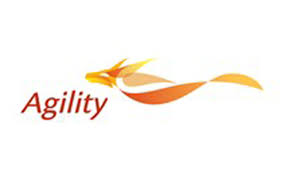Doha February 9 2022: Pakistan ranks No. 28 globally, according to the annual Agility Emerging Markets Logistics Index.
During the last four years Pakistan ranking slides from No.16 in 2018 to No.28 in annual agility report for emerging Markets Logistic Index for 2022.
China once again retains its position atop position and India holds on the second position overall for the third year in the Agility Emerging Markets Logistics Index.
The United Arab Emirates ranks No. 1 overall as the most competitive emerging market in GCC and No. 3 globally after only giants China and India, according to the annual Agility Emerging Markets Logistics Index.
The UAE led all 50 countries in the Index in creating the best business conditions and in the area of digital readiness, a new category in the Index.
The UAE out-performed all 50 countries in business fundamentals, an area where Gulf and MENA countries are clear leaders. Others near the top: Saudi Arabia (3), Bahrain (5), Oman (6), Morocco (9), Jordan (10), and Kuwait (12). Overall, Saudi Arabia (6) and Qatar (7) also ranked among the top 10 emerging markets in the 2022 Index, which was led by China (1) and India (2). Also performing well: Oman (14), Bahrain (15) and Kuwait (17).
The 2022 Agility Emerging Markets Logistics Index is the company’s 13th annual ranking of the world’s 50 leading emerging markets. The Index ranks countries for overall competitiveness based on their logistics strengths, business climates and, for the first time, their digital readiness — factors that make them attractive to logistics providers, freight forwarders, air and ocean carriers, distributors and investors. The Index includes a survey of 756 supply chain industry professionals.
Top 10 in digital readiness: UAE, Malaysia, China, Saudi Arabia, India, Thailand, Qatar, Indonesia, Chile and Philippines. Kuwait (12) and Oman (15) also ranked highly.
“The connection between a country’s digital capabilities and growth prospects is undeniable,” Agility CEO Tarek Sultan said. “The competitiveness of emerging markets countries will be determined by their ability to develop digitally skilled businesses and talent pools and find the resolve to lower their emissions in ways that spur growth rather than sacrificing it.”
Digital readiness assesses digital skills, training, Internet access, e-commerce growth, investment climate, and ability to nurture startups, as well as sustainability factors such as renewable energy mix, lower emissions intensity and green initiatives.
The importance of digital readiness was apparent in the survey. Logistics executives identified adoption of technology as the leading driver of economic and business growth for emerging markets. The top focus areas for their companies: technology and sustainability.
Most logistics industry executives see moderate-to-strong economic growth and little or no chance of recession in 2022, even without immediate relief from the snarled supply chains and sky-high ocean and air freight rates triggered by the COVID-19 pandemic.
Roughly two-thirds of the 756 industry professionals surveyed for the Index believe shippers will see cargo rates come down by the end of the year. Eighty-percent see port bottlenecks, air capacity shortages and trucking issues easing by year end.
“The industry’s optimism reflects the fact that emerging economies are getting more resilient and figuring out ways to weather supply chain disruption,” Sultan said. “If emerging markets can get better access to vaccines and give small business a boost, they can help power a broad, dynamic global recovery.”










